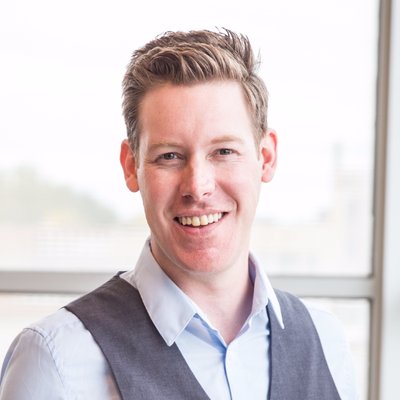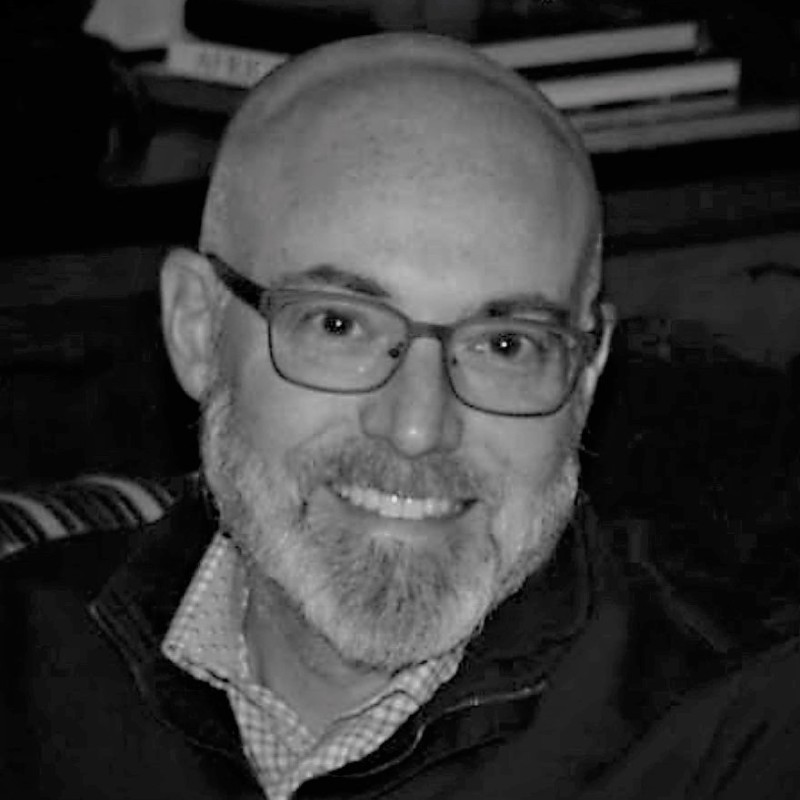87% of us are not passionate about the work we do. “Work isn’t supposed to be fun” is instilled in us right from the days of eduction.
Work-life balance usually just means dealing with the bad (work) so you can have more time for the good (life). What if work was actually supposed to be one of the best parts of your life instead of one of the things that you struggle the most with? A lot of the answer lies in energy management and energy intelligence, which is different for everyone.
Today, our guest is Josh Allan Dykstra. He’s the CEO of Helios and this episode is Work Minus Sucking. Hi, Josh. How are you?
I’m good. How are you?
Very good. Very good. Excited to talk to you today. Why don’t you tell us a little bit about yourself?
My name’s Josh Allan Dykstra. I’m a husband. I’m a dad. I’m a TEDx speaker. I’m an author and I’m a CEO of a company called Helios, as you mentioned. We’re on a mission to create a world where everyone can love work. So, that’s pretty much all I do.
That’s cool. So, we said Work Minus Sucking. So, that may not be exactly what people would expect. Why don’t you tell us why you picked this title?
Yeah. I think this is, you know, and this is the subtitle of the book that’s out there currently is “Designing an Organization That Doesn’t Suck,” and it’s always fun to say, oh, you know, work sucks and all. But really what I’m talking about here is something much more literal that work as it is sucks the life out of just about everybody. It sucks the energy from people. It sucks the passion from people. It sucks the resources from the planet with much thought to the contrary. So, business as it is does a lot of sucking and not a lot of giving. And so, we need to get rid of the sucking and organizations should be places that are life giving instead of life sucking for a whole host of really good reasons.
Well, let’s start with the negative side. What is it about work that makes it so uninspiring, that makes it suck the life out of us?
I think it’s probably important to mention, too, just kind of the size of this problem, that the statistics are pretty clear about this. There’s about 87% of us that aren’t passionate about our work. And that number is so big I think that we often don’t even kind of appreciate the largeness of it, this idea that almost 90% of people don’t really connect with the very thing they spend the majority of our lives doing, almost 90%. It’s crazy, but even though that’s true, I still don’t think that it impacts us like it should because I think humans have been taught for a long time, we’ve been being taught this idea that work is actually supposed to be painful. It’s supposed to hurt us. If it doesn’t actually hurt, it isn’t work. And I think that’s a big thing we need to come to terms with is that what if it’s not supposed to be that way? You know, what if work actually isn’t supposed to hurt you? What if it was actually supposed to be one of the best parts of your life instead of one of the things that you struggle the most with?
We’ve talked about even education on the show before and about how, you know, when kids are going to school, it’s almost like parents are encouraging them if you end up with something hard or you don’t like it, yeah, school’s not supposed to be fun. You’re supposed to hate it because that teaches you that work is bad and you’re going to hate your job later so might as well get used to hating things now.
And there’s some tension there, right? There’s some tension in this idea of a growth mindset where we definitely do want to accept and to encourage challenges because they develop grit and character and personnel and all that’s still true so there is a bit of a tension here. But what we find, though, is that when we get into the workplace, if we really want great performance we have to find our way into a different understanding about work because great performance actually looks a lot more like effortlessness than it looks like difficulty. So, when you see people in flow and in their zone doing exceptional things that most of us can’t imagine that other humans can do these things, right? You think about athletes and Olympians and musicians and all the people that we love to watch that are in their zone doing amazing things. There’s a quality of effortlessness to it. They make it look easy. We know it’s not. We know they work their tails off to get there but there’s an effortless quality to it. And this is the thing that we haven’t really translated into the workplace is the sense of effortlessness in our work. We think work is hard and therefore it becomes a self fulfilling prophecy and it remains really, really hard.
And when you say hard, do you feel like it’s hard because it challenges our skills or because it doesn’t and we’re just kind of sitting there bored with what we’re doing?
I think it’s a little of both. I think it’s a question of energy misalignment personally, that there are certain things that bring me to life that give me energy that allow me to be in my state of flow and in my zone. And for the vast majority of us, we don’t actually get to do many of those things at work and therefore work ends up feeling and looking really difficult. It feels like friction instead of flow. And so, I think that’s really kind of what’s going on there.
Well, let me push back on something that I hear a lot from other people is that, okay, you talked about 87% of us are not passionate about the work that we’re doing right now. Well, it’s going to be hard to get 100% of people passionate about what they’re doing. Some people just need money and they just need something to do. Is it even realistic to say, “Hey, everyone should be passionate, everyone, at their best, all the time”?
So, this is a question of kind of aspirations, you know? Should we not try to do something simply because it’s difficult to do so, right? So, the question for me really is more about what kind of world we want to live in, right? Do we want to just kind of accept the fact that the thing that we spend the majority of our lives doing is sucking the life out of everybody? Is that the kind of world we want? Because we can keep doing that. Let’s just keep going the way we are. We’re doing that pretty well. But if we’d like to do something different, it’s going to take a different perspective on what work is really for and what work is really about. And if we want a different kind of world then we can create one.
I think there’s another kind of question under this question, too, which is about a misunderstanding that if I don’t like to do something, nobody else likes to do it either, right? This idea of crap work, right? That there’s some crap work that nobody’s going to want to do and this is actually a really insidious myth because the more that we believe that there’s crap work out there that nobody is going to want to do, what we’re doing is we’re undignifying certain kinds of work. We say, “Oh, you know, that kind of work, you know, that’s just crap work. Nobody’s going to want to do that.” And then what happens is that if someone really wants to do it and someone actually would feel energized by doing it, they don’t feel like they should because it’s been undignified by the population.
And so, what we need to do is redignify all work that creates value for society, value for other humans. Any work that does that is dignified, good work and somebody will be energized by doing it. We just need to find those people. And so, there’s this myth that because I don’t like it, nobody else will like it. This is really deeply embedded in the psyche of us as humans and we need to get over it. We call it strength bias, right? I’m biased towards the things that make me feel strong and the things that don’t, I think nobody else will like them. And this is one of the things we work on pretty immediately with clients and partners to start to break down this myth.
Now, let me bring in another discussion I had with Byron Reese from Gigaom. He was talking about Work Minus Monotony that there are these jobs that really are terrible. There’s some things that maybe humans just should be doing or they’re a stand until we can figure out how to get a robot or some AI machine in there. What’s your take on that side of things? That there maybe are good things, there’s some drudgery, manual work we don’t do on farms anymore because we’ve outsourced all that to machines. Was that a good move or should we have just let people be happy with finding the people who are happy and let them do that?
I think that’s a great question of kind of the aspirational nature of this and I think it exposes some of the tension in here, too, because it goes back to the question of the world we want. So, if we find jobs like that then what would stop us from automating those things, right? So, that’s a question of human creativity. So, I’m absolutely on board with that. I think that we can use technology to keep replacing those things that maybe humans don’t want to do and I think that we could reapply the human creativity to do so. So, I think that’d be a very, very good solution. Yeah. There are some, you know, kinda dirty jobs out there. But let’s focus our attention and energy on automating those things.
And the bigger question, though, is that for the vast majority of people that I I work with, they aren’t in dirty jobs, right? They’re in offices. They’re in cubicles. They are very posh lives in their workplaces. And so, we’re not talking about that for the vast majority of people, at least that I’m talking to. They are not in those situations and they still have this mindset that there are some jobs in their workplaces that are so terrible that no one will want to do them. And so, that’s what I’m talking about with this conversation. All of us, no matter where we are, we have this bias that there are some crap jobs out there, and even in our offices, right? We disparage certain positions as less than and it causes a type of social inequality that’s really not healthy.
Can you give us some examples of clients you’ve worked with, what are those jobs that tend to be devalued that people look down on, like, hey,no one’s going to want to do this anyway? Can you give us some examples of those?
Yeah. So, it’s really interesting because it varies a lot on the person themselves. So, we all in our own little internal universe we have kind of a definition of what a crap job would be. And so, for me, it’s all the stuff that I don’t like to do, right? So, I think, “Oh, man, I hate details,” and so, you know, sitting in front of a spreadsheet all day just sounds like how could anyone want to do that? And what happens then is I actually don’t kind of pass off some of these tasks to people who would actually enjoy working on spreadsheets because I don’t believe those people exist.
They are there. I’ve met one or two.
Yeah. They absolutely are everywhere but because I don’t believe that they exist I just keep flogging myself because I also believe that work is supposed to hurt me and so it just keeps in this unending cycle of me hating my work or not really connecting or being in flow at my work because I’m hanging on to a bunch of stuff simply because I don’t think other people will want to do it and I believe that my work is supposed to be physically painful to me. And so, it just creates this ongoing cycle of me not being able to experience work as a joyful thing because I hang on to these things because I think other people won’t like to do them which is just a total myth.
Let’s move on to some solutions you bring in. One of the things you talk about is that we need a new operating system for how we work which we’ve talked on with some previous guests as well. You have this interesting idea of an energy based OS that needs to be there for how we work. So, I want you to dive in deeper to that. What does that mean?
So, quickly, I’ll talk about the metaphor itself just to make sure that people understand what I’m talking about. So, many, many leaders I think these days we’re talking more about company culture and that’s great. You know, that topic wasn’t even really on the radar a decade ago but I think it’s still a deeply misunderstood topic because culture, almost by its definition, is really complex. So, at Helios, we started recommending that leaders think about their culture like the operating system of their business. So, if you think about culture as the operating system of your business, almost all of us have an interaction with an operating system at least once a year when we have to update our smartphone. So, we can understand that the operating system, the OS, on our device, that’s the thing that kind of dictates how everything works on my device, on my smartphone.
This is a perfect metaphor for what culture actually is in an organization. It’s the operating system that dictates how things happen. So, the problem then is that the current operating system of work is built on really outdated technology. So, many people listening to this will probably familiar with this guy, Fred Winslow Taylor, for back in 1911 principles of scientific management. What many people I don’t think realize is exactly what he did when he applied science to management is what he’s doing in that moment, he’s creating technology, the very definition of technology is to apply science to industry. So, the question then is what was Taylor’s technological contribution, so to speak? And the somewhat simplified answer to that is managers. So, Taylor’s assumptions, most people are dumb and lazy, so we need to find a few smart and motivated people to tell the dumb and lazies what to do. And his technological answer to that, so to speak, is managers. We need the few smart and motivated to tell the dumb and lazy people what to do. And that technology of manager is the key to the whole system and this technology has been absurdly resilient.
There’s studies now where we’re showing that we’re losing $3 trillion dollars of economic output in the U.S. alone due to excess layers of managers and the data also shows we keep hiring more managers than any other role. So, we’re going in the wrong direction here. So, the operating system, any workplace operating system that utilizes managers is actually completely out of date and it’s destined for system failure basically. This technology is just too slow, it’s too unreliable, and frankly, it’s too insulting to work anymore. So, we need a different operating system and an energy based operating system is something that’s different entirely because the current system that’s based in the world of managers kind of centers around a kernel of fear.
So, the whole reason why do we need a manager, well, I’m afraid that people are too dumb to know what to do and I’m afraid that even if they didn’t know what to do, they’re not going to do it. So, we need someone to make sure that they’re going to do what they’re supposed to do because I’m afraid that if I don’t have someone doing that then things aren’t going to get done. Contrast that with an energy based operating system where the whole system is designed to do one thing which is maximize the energy of each individual person. So, this is what we get back to we need to get rid of the sucking, right? The system should be giving life and energy to each individual person. And so, if you can imagine a workplace where every process, every meeting, every task that you do is intentionally designed to help you be your most energized, focused, attentive, best self. The whole system is designed to help you do more of that. That’s what an energy based operating system is.
Okay. It sounds awesome. But I need some specifics. Like what does that look like to be energized by your work, by tasks, by meetings. What are some specifics you can give?
Totally. So, first of all, the first part of this journey is to understand what the heck energizes you in the first place. Most of us don’t actually have much of what we call energy intelligence. We don’t know what gives us energy and what sucks it out in a specific replicate-able way at work. Most of us can speak to energy as like, oh, you know, you ask people what gives energy? Oh, hanging out with my kids or laying on the beach, but you don’t spend… most of us, you know, chances are, if you’re like me, you don’t spend your work day hanging out with your kids or laying on a beach. That’s not reality for most of us. What we need to be able to answer specifically what are the things, what are the tasks at work that actually give me energy, that helps me stay focused and attentive to what I’m doing.
So, that’s the first part of this. It’s an inner journey of energy intelligence. So, that’s the first part of being able to create an energy based operating system. And then everything else is kind of revolving around taking a better, a different, a new look, let’s say, at the current system and say what in our current policies, our procedures, our meetings, what kinds of things are sucking the life out of people? So, at the core, this idea is not complex so I don’t want to over complicate this. What needs to happen is we need leaders to start to hold space inside the organization ti have different kinds of conversations about… everyone hates this meeting. Why are we doing it or why are we doing it this way? And when we look at things through the lens of if this, whatever it is, is giving people energy or not, we have a very kind of easy filter to be able to start to create better solutions and we can ask better questions about the things that we’re actually doing.
But it does require us to step away from just doing the work, right? This is maybe the hardest part is it requires us to step out of just doing more. This is the default path of work. We just do more and more and we push harder and we power through if something’s not working and we just work longer hours and we sleep less. Instead of that, this requires a step back and say is the way we’re working actually working, and more often than not, we’ll find that the way that we’re doing something is draining people’s energy. It’s full of friction instead of flow.
So, you’ve introduced another tension here between… you were talking about an energy based OS for an entire organization, an entire team, but then also we need to look at the individual level. So, how do we merge those two? If I say, you know, I get a lot of energy from meetings and being together and being collaborative with people but somebody else says, look, I want as little human interaction as possible. Just let me interact with my work. Just let me get my job done and I’m thrilled with that. How do you merge those two within one culture?
Well, there’s a place for both of those things and there’s a place for people of all different and we need all different kinds of strengths and energizers inside an organization to get all the things done that need to get done. So, there’s a place for both of those. The challenge really is leaders creating a safe enough space for both of those things to coexist and enough kind of guard rails to help people know how to interact with each other, not in spite of their differences but because they need each other’s differences. So, one of the frameworks that we talk a lot about is this kind of another tension between “me” and “we” which I think is exactly what you’re speaking to. There’s the “me,” there’s the individual differentiated “me,” the “I need to understand what brings me energy and helps me be at my best, my best most focused self at work,” and there’s a “we” element to this that we can’t just be differentiated. We also need to be integrated. We need to be able to play nicely with others. None of us working in a vacuum. It doesn’t work like that. We need to be able to work with others so there’s always this tension between “me” and “we” and making sure that your workplace operating system is properly attending to both is part of what makes this work. So, you really do need both of those things.
Well, Josh, how about you tell us a little bit what’s one thing you do differently at Helios that other companies probably don’t do that reflects this energy based consciousness?
I’d say a big part of it is to continually practice the awareness of our own energy intelligence and this is also where the “me” and the “we” start to connect because through really simple practices so what we do is, you know, in our weekly kind of team check in, we take 5 or 10 minutes and we set aside some space. So, again, this is about a leader creating the space to have a different kind of conversation and so we set aside some time for conversation around energy intelligence and we just talk about, hey, what are you noticing about what gives you energy and what doesn’t? What does your colleagues know about when you’re feeling like you’re at your best or when you’re feeling drained? And so, just by opening a space for this conversation what it does is it starts to rewire the way that we’re working together.
So, this is one of the principles of a field of study called appreciative inquiry that the inquiries, the questions we ask are, in and of themselves, they’re interventions. The questions we ask are tools to actually make things different because we ask a different kind of question, we get a different kind of answer. And so, when we ask a question, like, hey, what are you learning about your energy intelligence, it opens up a learning space for us to be able to learn, not just about each other, I learn about my colleagues and when they’re at their best and how I can help them be there more often, but I also start to learn about me. What we also know about humans is that we learn about ourselves when other people share what they’re learning about themselves.
So, just through this really simple practice, we start to kind of rewire the very operating system of our workplace is because what is work if not dialogue. So, this idea has been around for a while, this idea that dialogue is the fundamental unit of work. Our work happens in language, in conversation, in dialogue. This is how work happens when we move into kind of taking it outside of the “me” space into the “we” space, it’s through conversation, it’s words, it’s dialogues, it’s language. And so, the more we start to replace that language with language that speaks to what gives people energy and how they can do more of those things, we are dramatically altering the way that people can work with each other.
Nice. I really like the way you can bring those, and like you said, making space for people. I think that’s a big thing and understanding the people you’re working with, people who are leading teams need to know the things that encourage others and have those dialogues. It’s great. Josh, it’s been fantastic to talk with you. Where can people go to stay in touch with you and see what you’re doing?
So, the Helios site is at helios.work. So, they can go check us out there. We’re on a bunch of social media channels and the handle there is @theheliostribe so you can find us there. And if you want to just learn more about me and my work or watch the TEd talk, you can go to joshallan.com.
Fantastic. Well, thanks so much for being on the show and we look forward to interacting with you more.
Thank you so much.
Josh Allan Dykstra is a recognized thought leader on the future of work and company culture. He is the CEO of Helios, a community of leaders and work revolutionaries committed to creating a world where everyone can love work. His articles and ideas have been featured by Fast Company, Forbes, The Huffington Post, and Business Insider and he’s worked with some of the most iconic brands in the world (Apple, Sony, Genentech, Microsoft, among others). He holds an MBA in Executive Leadership from the University of Nebraska-Lincoln and his latest book, Igniting the Invisible Tribe: Designing An Organization That Doesn’t Suck, is available on Amazon and Audible. He lives with his family in beautiful Denver, Colorado.












